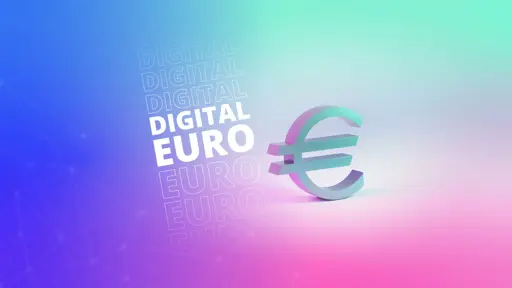From the 7th of April to the 9th, the European Central Bank spoke extensively about the Digital Euro, expressing hope about its potential and publishing an update of its rulebook. Its President, Christine Lagarde, also called for it, wishing to end European reliance on international payment solutions providers such as VISA, Mastercard, PayPal, Stripe and others.
I’m really hyped for this but in typical EU fashion it’s taking years.
Not to mention how long it will take for cardreaders & ATMs / cash machines to be updated to work with this.
I can see this taking a long time, so as long as they move the whole infrastructure forwards, together, then it will better than developing the “eumasterpayvisapalcard” and then thinking about the end devices…
deleted by creator
A digital euro that requires no banks or payment processors definitely has a use. It’s all the benefits of cryptocurrency but with the backing of a central bank.
Exactly. Best of both worlds. We actually want a currency that can be manipulated by government. That’s how they stabilise it. An unstable currency isn’t much use. Block chain transfers is great because it means easy, secure transfers in the open. No gatekeepers like WorldPay.
deleted by creator
I read the article.
Boiled down, it is essentially a direct exchange between physical (money in your bank account) currency and a fully digital counterpart, at a 1 to 1 ratio, that can be done both ways.
Unlike crypto, it is to be issued by a central bank and will have to be accessed through properly licensed bank entities or similar institutions.
This can work. I want to read the full rule book now.
So it’s like Fiat currency, that can be accessed digitally through your banking app, and it’s convertible to Fiat, but it’s not Fiat
Can you dumb it down what I’m missing here?
No need to dumb it down; you got the gist of it. But I’m going to do my worst to make my “explanation” as ridiculous as possible.
get bank account
get euro monies in said account
go to bank again
open linked account for digital euro monies
from bank app, convert euro monies into digital-euro monies
1 euro monie = 1 digital euro monie
send digital monies to anyone in Europe with no middle man, instantly; receive monies, too.
buy and sell with digital monies, in Europe, no assle
have digital Euro monies in linked account
want to buy breakfast with Euro monies
convert digital Euro monies to euro monies
1 digital euro monie = 1 euro monie
go to ATM, insert card, take euro monies out, get euro monies bill
go to cafe, get coffee and croissant, pay with euro monies
I laughed too many times writing that. I’m ridiculous and deserving of your scorn.
I’ll see myself out.
I actually appreciate you writing like that, because now I’m sure I don’t get it.
Don’t you already have all the upsides with the traditional euro? Transfers between people seem to be the only reason you mention, which I still don’t get what exactly the upside is.
I’m going to use a personal case, now.
I can get an instant transfer, within borders, two ways, in my EU corner:
a) I use account to account immediate transfer order, where I can pay anything from a few cents to a few euros, depending on bank
b) I can use a national subsystem, where phone numbers are used, and pay a few cents
But doing this, even within EU borders, is, to my knowledge, border line impossible, with current systems.
IBAN, BIC and SWIFT do exist but transfers through those channels can take days and be very expensive.
My country ordered all national banks, still in the very early eighties, to get their acts together, and find a way for people to access their accounts, pay services, receive and transfer money, regardless the bank they had their account. Thus it was created Multibanco, a service network, built, paid for and maintained by all banks working on my country.
The eEuro closely resembles this concept, in my understanding.
The eEuro becomes a parallel subsystem, vouched for, surpervised and controlled by and through legally binded institutions, without the need to force federalization of european bank systems.
The ECB issues eEuros, which you can exchange your conventional Euros for, through your bank account, but only use through the eEuro network. It’s the ECB managing all those movements, not every single country (veilled federated banking), thus it can bypass a huge amount of beaurocracy.
I can imagine this system as a precursor to something a lot bigger, like a world unified payment system. Individual creators and professionals could greatly benefit from it, using it to directly receive payments and donations
So, the concept exists to fix a systematic problem. Creating a new currency is just collateral.
I didn’t know things were that bad with banks over there, now I get it.
it’s basically the numbers appearing instantly instead of waiting 3 days
Wait, does it take 3 days to make a bank transfer in Europe? When I send money to family from Australia to Euro it takes like 2h, what’s going on with the world?
When I do from Australia to Australia it’s more like 1 minute. No fees.
Exactly like this. There is such a system in Nigeria with the e-Naira, and there was a pilot program in the Eastern Caribbean with their dollar. It works pretty well, and is not that complicated to write and maintain. I’m taking from experience as I was part of the team that wrote that. I think I’m no longer under NDA because the company I worked for does not exist anymore, so if anyone has questions I can shine some light on how it works under the hood.
Why do they make it so confusing? In one sentence they talk about replacing visa and stripe and making a euro payment processor, and then they also want a separate wallet for some reason? Even tho our bank accounts are obviously already “digital” euros. Also it seems they want to comoete with Wero??
Removed by mod
From their FAQ:
Privacy is one of the most important design features of the digital euro.
The digital euro is designed to be able to function offline in a way that would offer users a cash-like level of privacy, both for sending money to other people and for paying in shops. When paying offline, only the payer and the payee would know the personal transaction details of the payments made.
For online digital euro payments, privacy would be implemented so that the Eurosystem itself – the issuer and payment infrastructure provider – would not be able to directly connect transactions to specific individuals.
Further reading link they provide: https://www.ecb.europa.eu/euro/digital_euro/features/privacy/html/index.en.html
deleted by creator
Removed by mod
Yeah it confuses a lot of people that it is called “digital euro” when it is in fact a new currency, my guess is they chose that name because there would be more resistance against it otherwise
We need this so we can choose between providers, all we have now are private profit making companies like PayPal. And they can hold your cash, cut you off, etc.
Their wording clearly suggests they might be pushing a single candidate, yes.
They spoke extensively about it, because relying on US companies is relying on Trumps sanity…
They should just use existing blockchain and publish an EUR pegged stablecoin except with official backing of the central bank
This. Take the Tether model but with issuance directly from the central bank and guaranteed conversion to cash.
about fuckin time
Sounds less like a replacement for Visa/MasterCard and more like yet another bullshit crypto scam.
No. It’s similar to Gnu Taler.
It also says it (indirectly) in the article:
According to the ECB, the Digital Euro is “Central bank money in digital form”. In other words: the Euro, except digital.
Behind this truism, the ECB mean that it would be money, still issued by the ECB, but not taking the aspect of a banknote or a coin, available free of charge for all.
So no blockchain. If implemented correctly this could be not just a replacement for Paypal et al.
No blockchain, but I bet it will be tokenised and put on a blockchain.
So what? They already do that with every fiat currency in the form of stablecoins.
The on and off ramps for fiat on blockchains are difficult. It may be easier with a digital euro.











